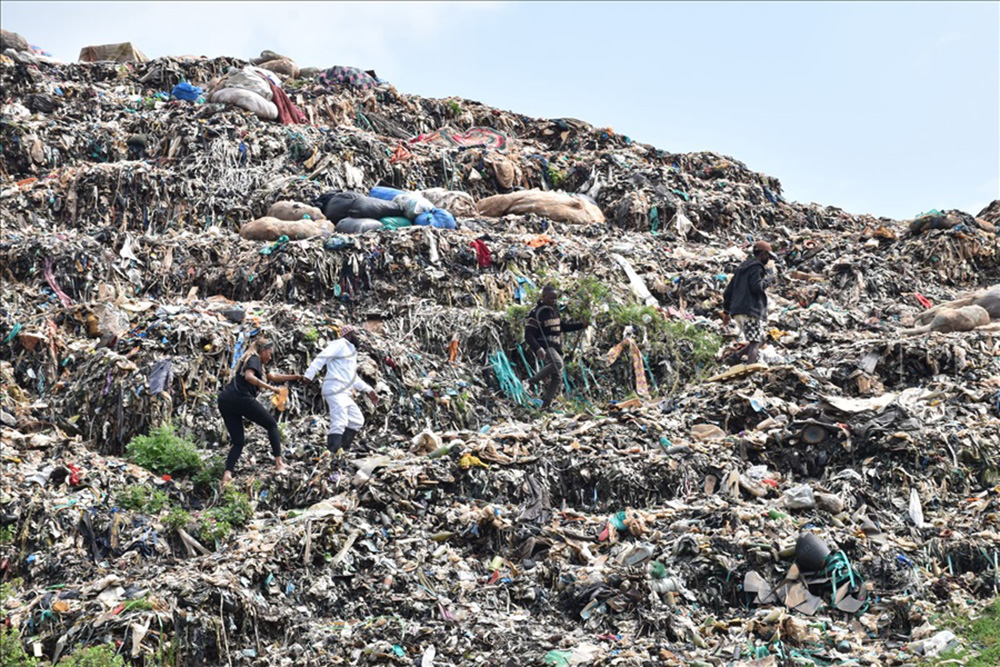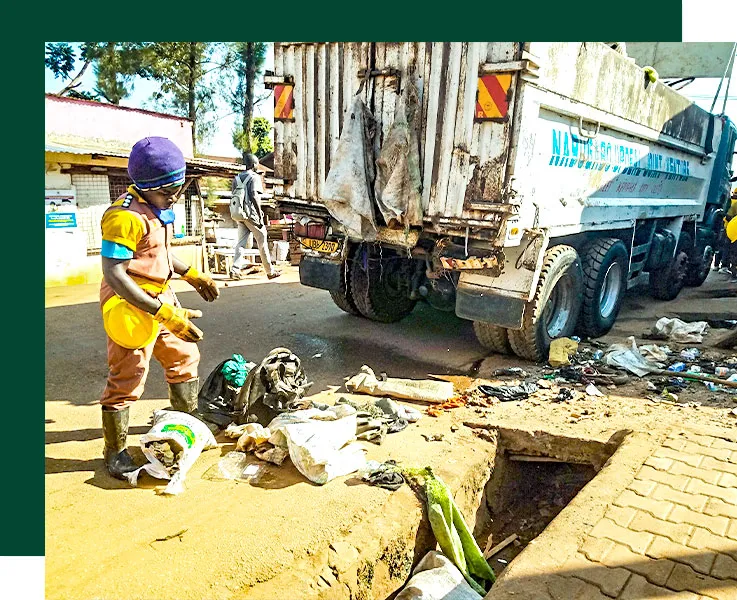The tragedy at Kiteezi dumpsite has brought to the fore the furtive politics surrounding garbage collection, management and disposal in urban centers, towns and cities. What befell Kiteezi has been a long and winding rigmarole passing the buck from the time of Mayor Christopher Iga to the current Erias Lukwago.

For those who have been around since the late 80’s through early 90’s, will recall that garbage disposal in the city was too casual and quite inconsequential. The city center had many dumpsites where rubbish could only be burnt on site without ferrying it away regularly. Luwum Street was a dump site at the old taxi park with constant smoke smoldering. The new taxi park was the equivalent of Kiteezi with mountains of garbage spreading to Mackay Street which had been blocked by heaps of garbage. It took weeks to clear the site of garbage to establish a makeshift market before it morphed into the new taxi park as we see it today by Hon. Bidandi Ssali and Hon. Francis Babu.
Kisekka market area was another huge dumpsite that took years to clear. The surrounding areas of Kyagwe road, old Kampala, parts of Kivulu, Bombo road all dumped garbage here. There was another huge site opposite Kampala High School, currently Agha Khan School, that was used by neighborhoods around Law Development Centre. This was so huge that it forced residents to abandon the apartments opposite Agha Khan school for many years. Wakaliga, currently veterans market and Lugogo bypass where Wavamuno apartments are located was another huge dumpsite catering for Kololo and Naguru summit and Naguru go-down. This took so many years to clear till recently when car bonds took over that land.
This was the state of garbage affairs till the current garbage politics set in. It was realized Kampala City Council then could not manage the daunting task of collecting garbage and the idea of contracting private companies was mooted hence beginning of garbage politics.
Councilors in Kampala City Council then formed private companies and awarded themselves tenders. This set out toxic politics in council against the then city mayor, Christopher Iga, to a point that during the campaign rallies between Iga and Al Hajji Nasser Ntege Ssebaggala, he was christened “cholera” due to an earlier cholera outbreak (Dec.1997 – March 1998). This was coined by councilors who had lost the tender to collect garbage. Eventually Christopher Iga lost to Al Hajji Nasser Ssebaggala in that election. The Ssebaggala administration awarded tenders to councilors who became rich over night, they were the ones to pass the budget yet at the same time they were service providers.
The emergence of independent private companies like Nabugabo Up deal Venture (NUJV) was intended to remedy the failures of councilors, but they also came with other challenges of stiff competition from other companies that operated in the different divisions of Kampala City. In central division for example, Nabugabo Up deal Venture faced stiff competition from Shauri Yako which made business unviable due to limited scope, until they merged and formed the Nabugabo Shauri Yako United Traders Limited. All this was politics of inclusion for those who had been edged out. The garbage politics has become so engrained in Kampala politics to the extent of influencing the politics at the City Council and determining which candidate (councilor) represents which area.

Kiteezi was started in 1996, but it has had its fair share of politics ranging from the collectors of garbage, and the managers of the dumpsite. It has been stated that the site management is run by a company owned by a famous rally driver who earns UGX4.5 billion annually. The exact work is debatable, since the trash scavengers do the work of sorting this rubbish as a means of survival. Anyone who visited Kiteezi would see armies of people who live off this garbage and it is alleged that even then they were supposed to pay a certain fee to access the garbage heap.
Due to garbage politics, the report authored by the technical team, warning of the impending disaster was shelved, citing lack of money, but now the money to look for dead bodies and sheltering the victims is available.
The politics here are allegations that Lukwago has vested interests in both the company that manages the dumpsite and the proposed company that is supposed to recycle and also generate electricity. In addition no one wants the other to get credit for solving the garbage menace. Allegations of kickbacks and inflated costs of generating electricity have also caused some jitters as the president directed that no power company should charge more that 5 cents of a dollar, yet the unit cost being offered by the generating companies is 8cents.
The garbage politics has spilled over to Dundu landfill in Mukono which was bought to ease pressure off Kiteezi. The local leadership and the area MP have ganged up against Kampala Capital City Authority. They protest against dumping garbage in their midst. Dundu is an upcoming residential area, but at the time the land was bought, it was desolate and nobody took interest in whatever garbage was dumped, but over the years, the area has gained traction to people escaping the hustle and bustle of the city. Now the garbage politics, can’t allow the establishment of a dumpsite.
Suddenly, garbage has now turned into a street hawking item. Trucks full of garbage are now seen moving to anyone willing to offer space for disposal. Trucks have gone to Nkumba, Mukono, Nansana and other private spaces, just to look for land where garbage can be dumped. This haphazard adhoc actions underpins the garbage politics at play. If a decision to finance a recycling plant had been taken in time, these knee jack actions would have been avoided. No lives would have been lost and the colossal amounts of money being spent to look after the victims of the slides would have been employed to address other pressing issues.




